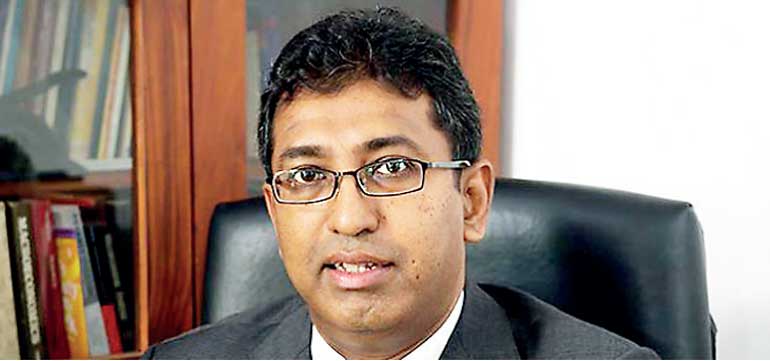Saturday Feb 21, 2026
Saturday Feb 21, 2026
Monday, 11 December 2017 00:45 - - {{hitsCtrl.values.hits}}

Policy Planning and Economic Development Deputy Minister Dr. Harsha De Silva
By Skandha Gunasakara
The Opposition failed to carry out its duty to critique Budget 2018 in a logical manner as a proper Parliamentary Opposition should, Policy Planning and Economic Development Deputy Minister Dr. Harsha De Silva said in Parliament on the day of the final Budget vote.
Taking part in the Third Reading of the Appropriation Bill 2018 on Saturday (9), the Minister said that it was the norm for the Opposition to criticise the Budget proposal but this time around it had failed to do so in a logical manner.
“What we have seen is the Opposition always criticising and finding fault with the Budget proposals we have put forth. This allows Parliament to bring in amendments so that all can agree on the final Budget proposals. However, this year the Opposition has wasted that chance,” he said, adding that Finance Minister Mangala Samaraweera and his officials should be proud of the Budget prepared by them.
Subsequently, taking the opportunity to make a few suggestions to the Finance Minister, Dr. De Silva said that the tax imposed on telecom towers should be removed,
“Due to this tax, private companies which provide digital services can be discouraged. If the country is to move towards a digital era, we need their participation. So I think the Minister should do something about this proposed telecom tower tax,”
Thereafter, Dr. De Silva pointed out that the VAT imposed on constructing condominiums would inconvenience those trying to build their first house.
“The Value Added Tax (VAT) imposed on constructing condominiums. This VAT was removed about two years ago, but introduced again through Budget 2018. I request the Minister to consider if the Government can give relief to those who construct their first house spending Rs. 5-6 million.”
In addition, the Minister commended the Finance Ministry’s decision to reduce the tax on beverages with a low alcohol percentage.
“The President also expressed his views on this tax. The Treasury imposed a tax based on certain principles. It is not relevant for the Treasury to decide whether people should consume alcohol or not. We should look at how other countries in the world impose a tax on alcoholic beverages. What they follow is a method of imposing taxes based on the alcohol percentage contained in the beverage. In that sense, the Finance Ministry’s decision to reduce tax on beverages which contain a low alcohol percentage is correct. If anyone has a problem with it, we can hold further discussions about it.”